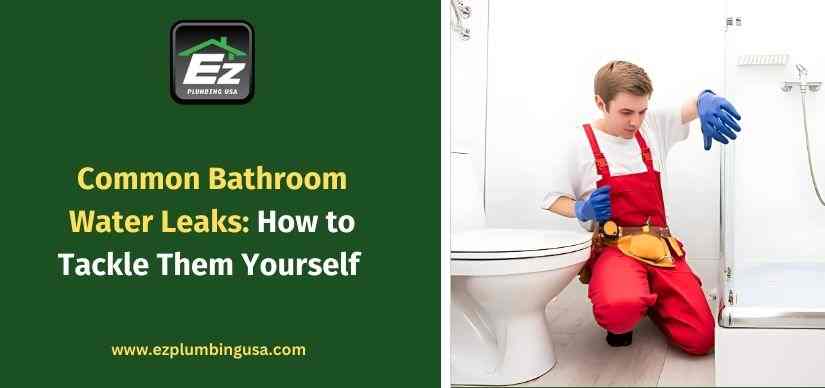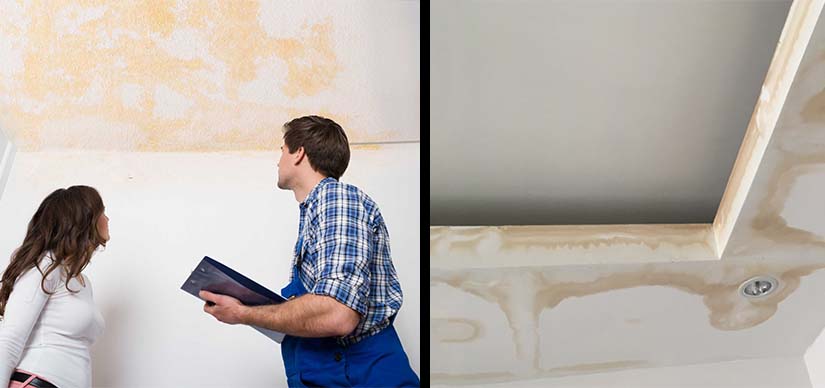Common Bathroom Water Leaks: How to Tackle Them Yourself
Views : 216

Common Causes of the Water Leaks in the Bathroom
- Leakage Faucets – Worn-out washers or malfunctioning O-Rings
- Running Toilets – Malfunctioning flappers or fill valves
- Leakage in the Shower – Cracked grouts, faulty shower heads, or leaking valves
- Sink Drain Leakage – Loose pipes or faulty seals
- Hidden Pipeline Leakage – Cracked or corroded pipes behind eased walls
How to Recognize a Water Leak in the Bathroom
- Check Your Water Meter
Turn off all water fixtures in the house. Make a note of the reading on the water meter. Do not use any water for 1-2 hours. If the reading on the meter changes, there is a likelihood of a leak. - Dripping or Running Water
The sound of dripping or running water can denote a leak behind walls or under floors if it can be heard when no fixations are on. - Look for Water Stains & Mold
Check the walls, floors, and ceilings of the bathroom thoroughly for other signs of water damage, mold, or crumbly spots. This might indicate concealed and leaking. - Check for Musty Odors
Damp odors or musty smells usually indicate hidden water pooling where mold can flourish.
DIY Fixes for Common Bathroom Water Leaks
1. Fixing the Faucet
- Switch off the water supply.
- Remove the tap handle and unscrew the packing nut.
- Replace the washer or O-ring.
- Reassemble the faucet and check for leaks. Let it pass into the next step.
2. Stopping a Running Toilet
- Check that the flapper seals properly after removing the tank lid.
- Replace a worn flapper.
- From water continuously flowing into the tank, the fill valve will have to be either adjusted or replaced.
3. Repairing Shower Leakages
- Remove showerhead and soak it in vinegar to clean away blockage.
- Change all ageing rubber washers or O-rings.
- If the leak persists, you might be looking at some valve trouble, which might require a pro.
4. Repairing Sink Drain Leaks
- Tighten the slip nuts on the drain pipes.
- Replace the rubber gasket/P-trap if the leak persists.
- Cover threaded connections with plumber's tape for a tighter seal.
5. Repairing Hidden Pipe Leaks
- Water stains on the walls or ceilings
- Low water pressure
- Sudden increase in your water bill
When to Call for Commercial Plumbing Services in San Diego
- Water is leaking and damaging your bathroom
- There are several leaking fixtures
- You suspect a slab leak beneath your house
- DIY efforts have failed
Ways to Avoid Future Bathroom Leaks
- Inspection of Plumbing Regularly – Faucets, toilets, and pipes should undergo regular inspection to catch early signs of a problem.
- Upgrade Outdated Fixtures – Replace faucets and showerheads to avoid harsh water leaks.
- Seal Grout & Caulking – Make certain that water will not intrude into the walls and floors.
- Monitor Your Water Bill – If your water bill is suddenly high, you may have a leak somewhere.
Conclusion
FAQs
Q1. How can I tell if there is a hidden leak in my bathroom?
Signs of a hidden leak are increased water bills, wet walls and floors, mold, and a musty smell. If unsure, call for professional water leak detection services in San Diego to track down the source.
Q2. Can small leaks do a lot of damage?
Oh yes! Even small leaks can cause mold development, weaken structures, and add to water bills. Fixing the leaks early on can save a lot of money.
Q3. How much does it cost to repair a bathroom leak?
Maintenance costs can vary depending on the gravity of laborious repair work. Minor repairs will cost less than $100. However, if leaks are hidden inside the wall or under concrete, expensive commercial plumbing services in San Diego are required, probably costing $500 or more.
Q4. What should be done to prevent bathroom leaks?
Regular maintenance of all the bathroom plumbing fixtures, checks on loose connections, and sealing of grout will prevent possible leaking. Another way to reduce leaks is to upgrade old fixtures.
Q5. Should I try to repair a bathroom leak myself?
For minor leaks, it works well to tighten things up or replace the washer or whatever is leaking. But for hidden leaks or considerable plumbing issues, one would have to call an expert.

.jpg)

.jpg)
